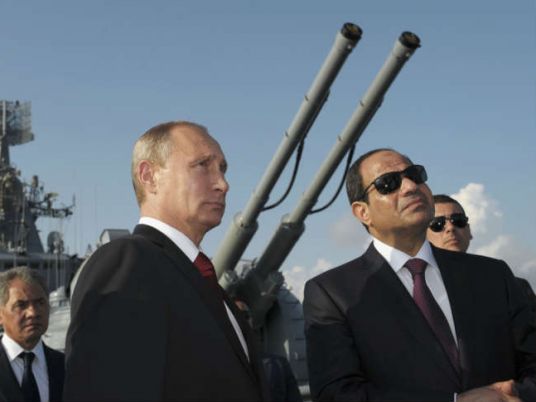Since explorers first found natural gas beneath Egypt’s sand and water, the government has struggled to manage its relationship with the foreign companies who manage the extraction of that gas.
The exports which those companies make possible bring in much needed foreign currency, while the gas they produce fuels the domestic needs of households and industry. European and American companies have brought in technology, money and expertise that Egypt does not have.
Constitutionally, natural resources such as gas belong “to the people of Egypt,” who are thereby entitled to share in the resultant wealth. But in most cases, Egypt Independent’s investigation finds, the deals that have been cut between foreign producers and the government have not been in favor of the people.
“None of Egypt’s gas deals have been profitable for the country,” an energy adviser to the 2005-2011 government told Egypt Independent.
The resulting situation is one in which Egypt owes much of the industry’s development to foreign companies and governments, but also much of its problems. It is an arrangement that, according to industry insiders, has resulted in a highly imbalanced relationship.
“Europe’s main, long-term interest in Egypt is gas. It wants to help Egypt help Europe,” said Mika Minio-Paluello, a representative of the UK-based Platform, an energy industry watchdog, who is currently working at the Egyptian Initiative for Personal Rights.
“By the 2020s, Europe estimates that Egypt will be exporting more gas than Libya. But this relies on the assumption that Egypt won’t be using the energy it needs,” he added.
During the 1970s, Egypt proved to be rich in natural gas and, with the help of foreign companies, exploration has since taken place across the country’s deserts, the Nile Delta, the Red Sea and in the Mediterranean.
By 2010, gas exports, according to World Bank data, made up over 50 percent of all Egypt’s merchandise exports.
Getting it out of the ground
Gas delivery has always been dependent on transportation; it cannot be bottled like oil. It must either be liquefied or pumped into a pipeline.
This transportation restraint means that gas does not have a near-universal international price, like its easily barreled sister product, oil. It is subject to geographical price variations and fluctuations.
The Egyptian government has dealt with this situation by reaching agreements on a long-term, fixed price for gas that it buys from foreign companies. This should be a win-win situation, in which Egyptian state-owned companies secure supplies for constantly rising domestic demand and foreign companies meet the demands of their export markets.
But, for several reasons, there has been more loss than gain for Egypt.
An unhealthy partnership
Production sharing agreements (PSAs) are the modus operandi for Egyptian national petroleum and foreign companies. They assure that foreign companies walk away from projects with at least their costs of production covered plus a decent slice of the profits, while guaranteeing the majority of gas supplies for the Egyptian government.
Youssry Hassan, head of Athens-based Vegas Oil and Gas’ Egypt office, has worked in oil and gas production for over 25 years. He thinks it’s time the government stopped signing PSAs, though it is the same contract under which his own company is licensed.
“As an Egyptian, what I want is for everyone to benefit,” he said. “PSAs were good maybe 15 years ago, when Egypt needed to attract investors.”
Now, he said, they encourage waste on the foreign companies’ side, and create more auditing work for the government. Because foreign companies know that their production costs will be covered no matter what, industry insiders say they splurge in every step along the way. An alternative financing system is known as “tax and royalties.”
“Oil and gas companies live in luxury,” said Magdi Nasrallah, professor and founding chair of the Department of Petroleum and Energy Engineering at the American University of Cairo.
Meanwhile, the Egyptian government often gets stuck paying a lower than market price for years, because the price agreed upon cannot be readjusted. In the volatile gas market, that can mean big losses.
“The main problem is that there have been no price renegotiations for 9, 10, 15 years,” Nasrallah said.
In addition, the onus is on the Egyptian government to try to regulate the companies’ spending, a job Hassan said the Petroleum Ministry is ill-equipped to handle. It delegates the role of the Egyptian General Petroleum Corporation.
“It creates conflicts, delays, and waste,” he said. “EGPC should have no audit role, because the government should not be responsible for reimbursing companies for production costs.”
There are also fundamental economic and accounting errors on the Egyptian side.
According to the Egyptian budget, the oil or gas received from these joint ventures with private companies is considered as absolutely “free” goods, therefore no matter the price they are sold at, they incur an automatic profit.
This is the wrong assumption, according to experts Hakim Darbouche and Robert Mabro, authors of a study on Egypt’s natural gas market published last year by the Oxford Institute for Energy Studies.
“In reality, however, the Egyptian [national oil companies] are incurring an opportunity loss equal to the difference between the domestic price and the prices at which oil and gas are purchased from foreign investors,” they said.
The domestic prices which Darbouche and Mabro refer to are the heavily subsidized prices at which Egyptian citizens and businesses receive gas, and the electricity which it generates.
Sending it abroad
Most of Egypt’s gas export deals were formed in the late 1990s and early 2000s, when a great deal of research had yet to be conducted on the country’s actual long-term gas reserves.
What resulted was a frenzied signing of export agreements on the premise of un-proven gas reserves, due to a combination of factors, according to Hassan and others in the industry.
Egypt had helped broker the Camp David peace treaty between Palestine and Israel, was going through a currency crisis and in need of foreign reserves, and initial explorations seemed to show vast reserves.
It was in this atmosphere that Egypt’s most controversial deals were signed, with the Israeli company Ampal and with the Spanish company Union Fenosa. In 2009, Spain, the US and Jordan were the top three recipients of Egyptian gas. Israel was fourth.
In addition, at the time of these contracts, there was little domestic market.
Even urban homes were not prepared to consume the gas. There was no infrastructure to pipe it into most houses; there were no liquefying facilities, so the exports were indeed more profitable options all around for government officials — no infrastructure investments at home, and a higher price than the subsidized domestic one.
But unfortunately the infrastructure has not advanced greatly since then. Egypt currently has only two liquefying plants, one in Damietta, the other in Idku. Many households have not invested in natural gas connections, despite government incentives, hence continued demand for butane.
So, long-term, binding export deals were signed.
In hindsight, almost all experts agree these were bad decisions. Egypt is not producing gas at the great rate many had expected, and might not even have adequate reserves to make good on the current deals. They have also not been financially viable.
“Egypt shouldn’t be exporting at below market price,” said Minio-Paluello. “It should be exporting at the maximum price it can get, such as selling it on the spot market like BG does,” he added, in reference to the British multinational corporation that is one of Egypt’s largest gas producers. In the spot market, gas is sold at the day's market prices, rather than on the basis of long-term deals.
With presumably this same thinking, the High Energy Council issued a moratorium on new export deals in 2009 until the end of 2010.
And though the Petroleum Ministry still holds that the country holds reserves of more than 77 trillion cubic feet, most say this is number is optimistic at best.
“We didn’t have good knowledge of reserve figures in early 2000, because real exploration didn’t start until 1995,” said Hassan.
The arbitration fallout
Under most of the contracts which it has signed, Egypt is liable for huge sums of money if it doesn’t deliver on the gas which it has promised.
The recent termination of the Egypt-Israeli gas deal has set off a wave of international arbitration proceedings, the third-party judicial system by which international commercial disputes are often settled.
Under most contracts, the investors are usually entitled to large compensation if it is terminated on the Egyptian side, but that doesn’t worry Hassan.
“Arbitration doesn’t scare me,” he said. “We’re under force majeure, a revolution, no one can argue with that.”
“Force majeure” clauses alleviate one or more parties of their obligations in the event of war, natural disaster, or similarly exceptional events.
But according to Minio-Paluello, Egypt does have reason to fear the outcome of arbitration, which nearly always favors foreign investors in developing or recently developed countries.
“Yes conditions have changed, but arbitration doesn’t work that way,” he said. “It’s designed to protect the investors. I have little hope of Egypt winning in arbitration.”
This piece was originally published in Egypt Independent's weekly print edition.



